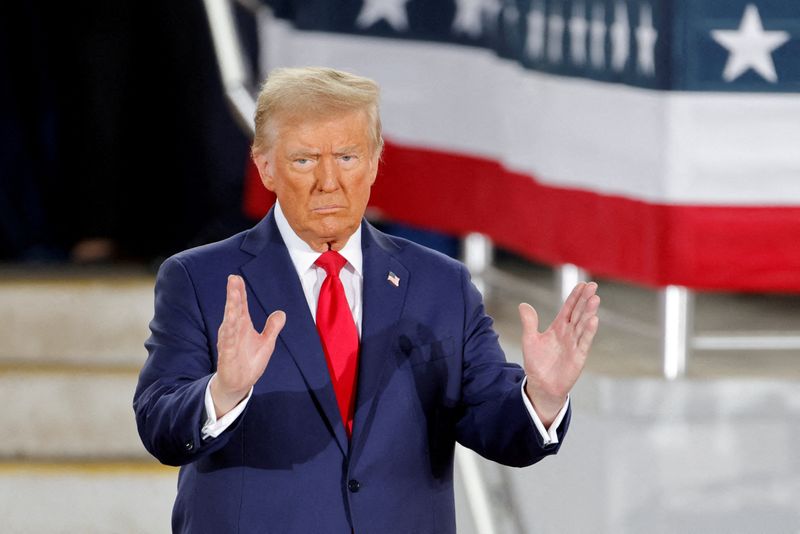Donald Trump is set for a second term after winning the 2024 presidential election, with CLSA analysts stating that his protectionist policies and plans for local tax breaks could present headwinds for stocks in the Asia-Pacific region.
Trump is broadly expected to adopt a hardline stance on China, having vowed to impose a 60% tariff on all Chinese imports. Beyond China, Trump has also proposed increased duties on all imports to the U.S., which, according to CLSA, damages the growth outlook for APAC, especially among countries with high export exposure to the U.S.
These include Taiwan, South Korea, Japan and Malaysia.
Trump’s trade tariffs are also expected to dent the U.S. economy, especially if the country’s trading partners impose their own retaliatory tariffs. CLSA says this could knock 1% off U.S. gross domestic product by 2026, and raise inflation by 2 percentage points in 2025.
Trump’s inflationary agenda is also expected to stem the Federal Reserve’s current easing cycle, supporting the dollar and denting regional currencies, CLSA said. This trend, however, is expected to benefit export-oriented companies with high U.S. exposure.
CLSA noted that Trump’s tax cuts and jobs act during his first term contributed to ending a strong run in emerging markets through 2016 to 2018. Trump’s initial tax cuts had spurred strong growth in U.S. corporate earnings, which diminished the appeal of EM earnings, causing underperformance in EM equities.
Trump has proposed an additional corporate tax rate cut to 15% from 21%, although this will depend on the Republicans sweeping both levels of Congress.
CLSA also noted that any withdrawals of U.S. commitments in Asia, under Trump, could spark an APAC arms race.
Stock markets in Asia reacted positively to Trump’s election victory this week, given that it cleared a major point of uncertainty for risk-driven markets. But their trajectory remains uncertain, especially given that Trump is likely to enact more protectionist policies.




